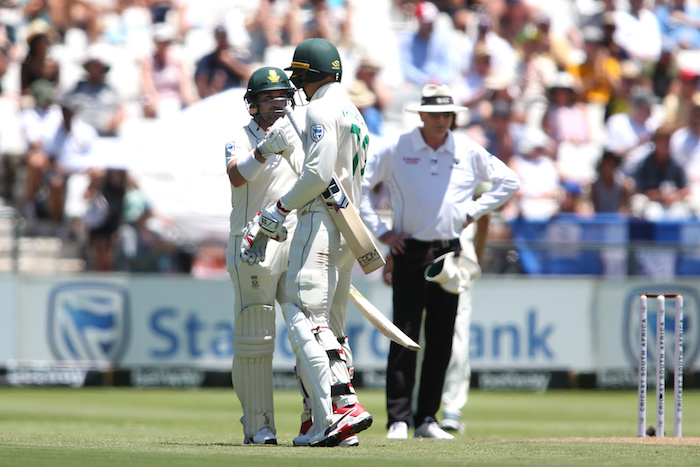If the on-field umpires aren’t going to bother calling no-balls at Newlands, then the television umpire needs to be immediately empowered to police the frontline, writes JOHN GOLIATH.
It’s clear that umpires don’t check for the front-foot no-ball anymore.
On Saturday at Newlands more than half a dozen front-foot no-balls were missed by on-field umpires Paul Reiffel and Kumar Dharmasena. The only times the no-balls were picked up was when a wicket fell.
There has been a couple of instances in this Test match where a wicket has been overturned because of a bowler overstepping. In the England innings Oliver Pope got a reprieve when Kagiso Rabada overstepped in the twilight of day one, while Rassie van der Dussen seemed to have the luck of the Irish on day two when Stuart Broad overstepped after finding the South African’s edge.
It’s been a rather frequent occurrence, though.
It’s not just been a problem in this series, but all over the world. In the recent series between Australia and Pakistan, a total of 21 no-balls were bowled on one day during a Test match in Brisbane.
In fact, it’s become such a problem that the ICC gave the television match officials in the one-day series between India and the West Indies the power to police the frontline as part of a series of trials.
New magazine issue: Why De Kock must bat at four
South Africa currently trail England by 54 runs with two second-innings wickets in hand after the second day’s play. If the all the no-balls were correctly identified, that deficit could be substantially less, because of the run for the no-ball and the extra ball that had to be bowled. It would have also disturbed the rhythm of Broad and James Anderson, who were fantastic on a day that the batsman should have dominated.
This Test match is heading for a cracking finish, and 20 runs at this stage could be like gold. Those no-balls could be the difference in the Test match if the Proteas fall short by 20-odd runs.
So it’s clear that this issue with the no-balls is having an influence on the game, so why not give the TV umpire the immediate power to try to sort out the situation? This could leave a massive stain on a Test match that is turning out to be a cracker.







